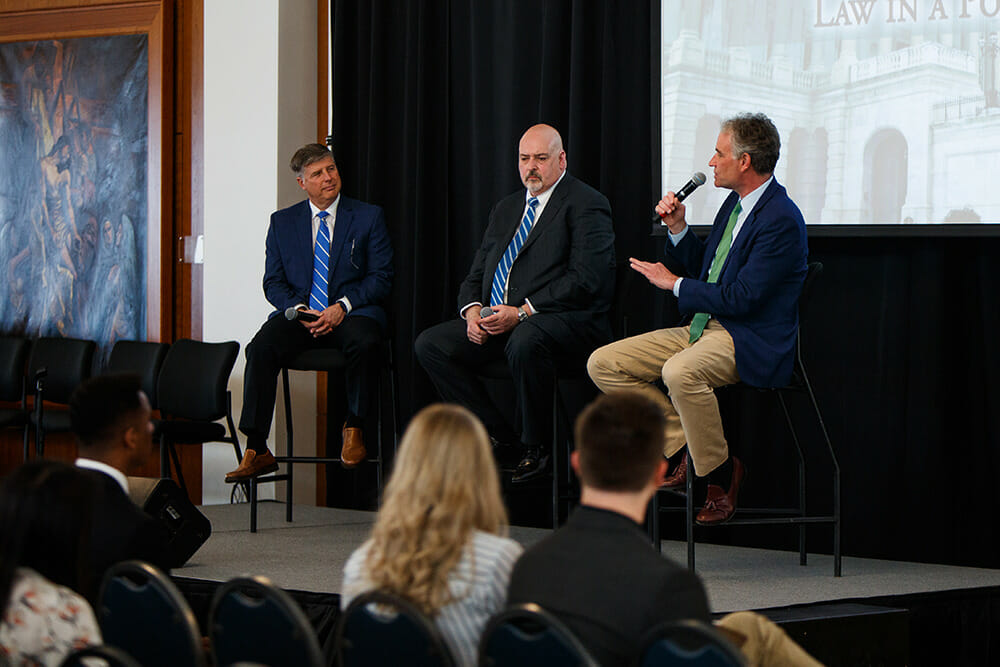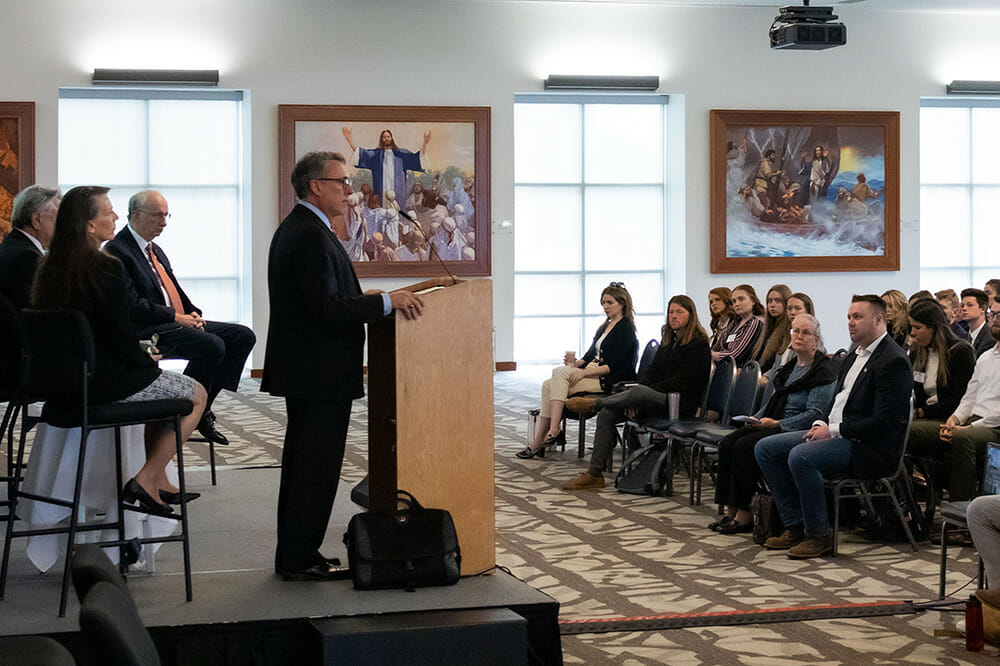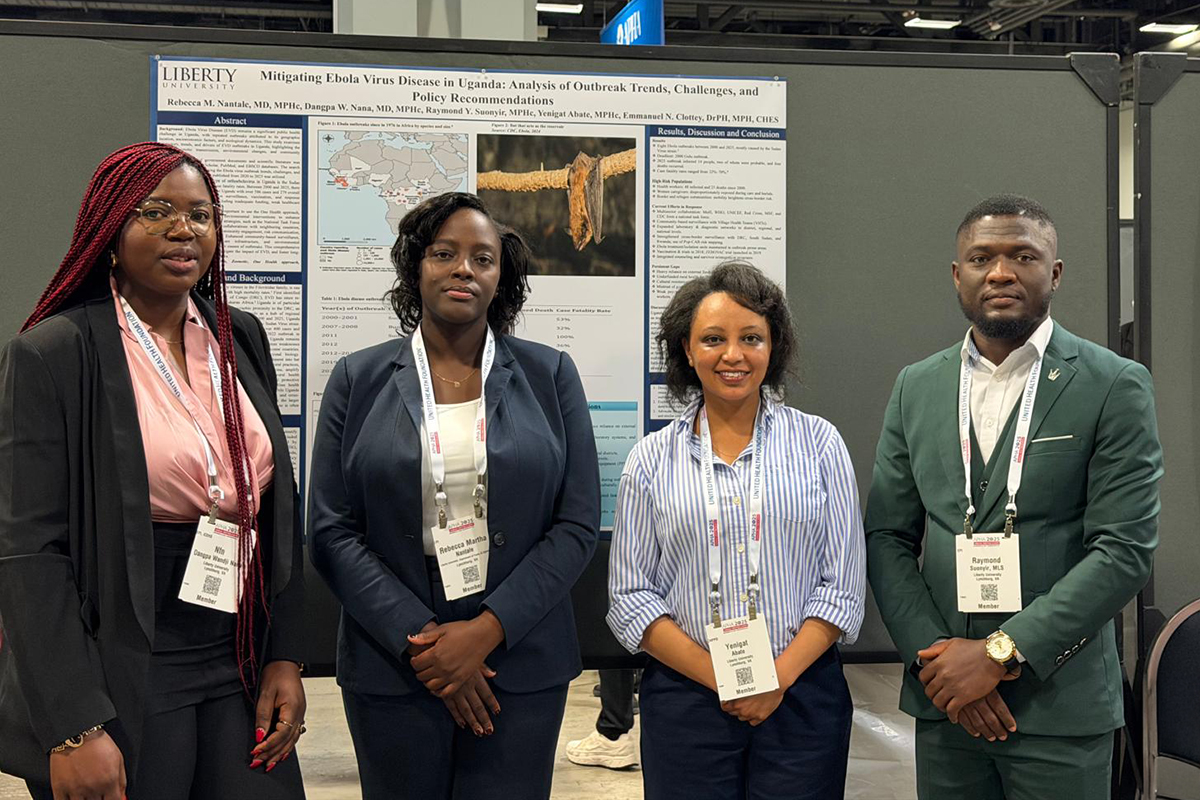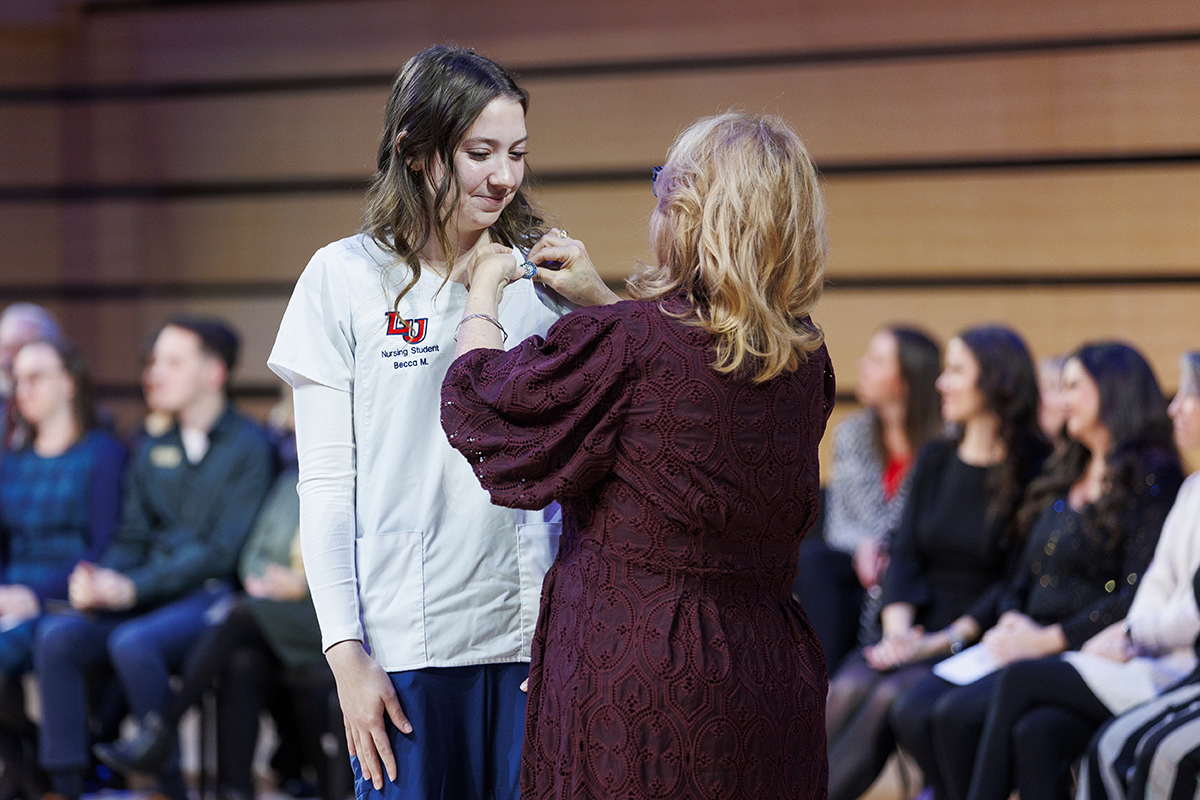Helms School of Government ushers in major public policy voices in second annual academic research conference
March 29, 2022 : By Logan Smith - Office of Communications & Public Engagement

Liberty University’s Helms School of Government, in partnership with its Journal of Statesmanship & Public Policy, congregated leading policy minds on campus March 24-26 for its second annual academic research conference, “A Nation Divided? Assessing Freedom & the Rule of Law in a Post-2020 World.”
One of the many distinguished guests was newly elected Virginia Gov. Glenn Youngkin, who spoke in Friday’s Convocation; his message served as the keynote address for the conference. Youngkin encouraged students to consider careers in public service, saying that Christians must engage on the front lines of America’s rattling culture war.
“The reputation and impact of Liberty University extends far beyond the Blue Ridge Mountains,” said Youngkin, who prayed over the Convocation audience and asked that God would direct students’ steps and light their paths so that they would find clarity in following God’s calling. “The students and graduates of Liberty University are indeed a force for good.”
Students, faculty, and more than 400 registered attendees heard from an impressive roster of voices like new Speaker of the Virginia House of Delegates Todd Gilbert, Virginia Senator Steven Newman, and former Virginia governors Bob McDonnell and George Allen. Members from the Family Research Council, Forge Leadership Network, the Heritage Foundation, and the Ethics and Religious Liberty Commission were also represented.
“This conference really is about the students, and so the fact that students were able to engage at this level with significant leaders is critical,” said Dean Robert Hurt. “It was a great success, and I can’t thank enough all the people who make these events possible. … I think the students really got a lot out of it. I suspect we will do it again next year.”

While some panelists and presenters joined virtually, the bulk of the conference was orchestrated in person. Last year’s conference, the first of its kind, was completely remote.
This year’s panelists spoke on a variety of pressing foreign and domestic concerns, including the heightened Russia-Ukraine conflict, the state of Virginia’s legislature, Critical Race Theory’s threat to education, and a broad volley of national security, legal, regulatory, and international issues.
“This event has been fabulous, and I’ve been thrilled with the attendance,” said Associate Professor of Government Dr. Mary Prentice, who, alongside Department Chair for Government Dr. Kahlib Fischer, was instrumental in organizing the conference. “I praise God for pulling all the pieces together for this. Most importantly, if it helps even one student, that would be good enough with me. But I think it helped countless students.”
The School of Government repeatedly provides students with opportunities to research and engage with America’s leading policy influencers. In addition to panels, which were livestreamed from the Montview Student Union, Alumni Ballroom, more than 70 government students and faculty presented their own research through 14 separate moderated breakout sessions.
As part of the “Confrontations with China” breakout session, graduate student Alex Mishra proposed an anti-satellite weapon that could protect America’s orbiting assets.
“This topic is something I’ve been wanting to do for years, and this conference was a platform to finally bring it out to the public,” said Mishra, a public policy student who plans to present his findings for Liberty’s Research Week April 11-15. “Satellites are the backbone for our modern society. Everything we do economically and militarily, communication-wise, goes through satellites, and they’re not protected. China has anti-satellite weapons that can actually destroy U.S. satellites.”
Following Youngkin’s Convocation address, McDonnell and Allen talked about their journeys into public service, the recent Virginia gubernatorial election, and the many critical issues facing the state of Virginia.
Friday’s Ukraine panel, which brought in Rear Admiral Tony Cothron, Dr. Gai Ferdon, Dr. Tom Metallo, and Professor Scott Roenicke — all distinguished School of Government faculty with decades of experience — to speak on the heated conflict between Russia and Ukraine and how America is navigating the crisis. Roenicke encouraged listeners to utilize Christians’ most powerful tool: prayer.

“As long as Mr. Putin is in power, I think we’re done dealing with Russia,” said Roenicke, who worked closely with the Russian Embassy during his robust 30-year career as a policy maker. “What we have now is a new Cold War. The Reagan era is back.”
The Helms School’s Master of Arts in Public Policy degree equips students with graduate-level training to be ambassadors for Christ in the public arena. The school’s Journal of Statesmanship & Public Policy, a joint sponsor of the conference, recently surpassed 11,000 downloads.
“Since the pandemic, there have been lots of opportunities to look back and see where policy makers got it right and where they got it wrong,” Hurt said. “It’s my hope that out of this conference comes new ideas that can perhaps help policy makers in the future.”


